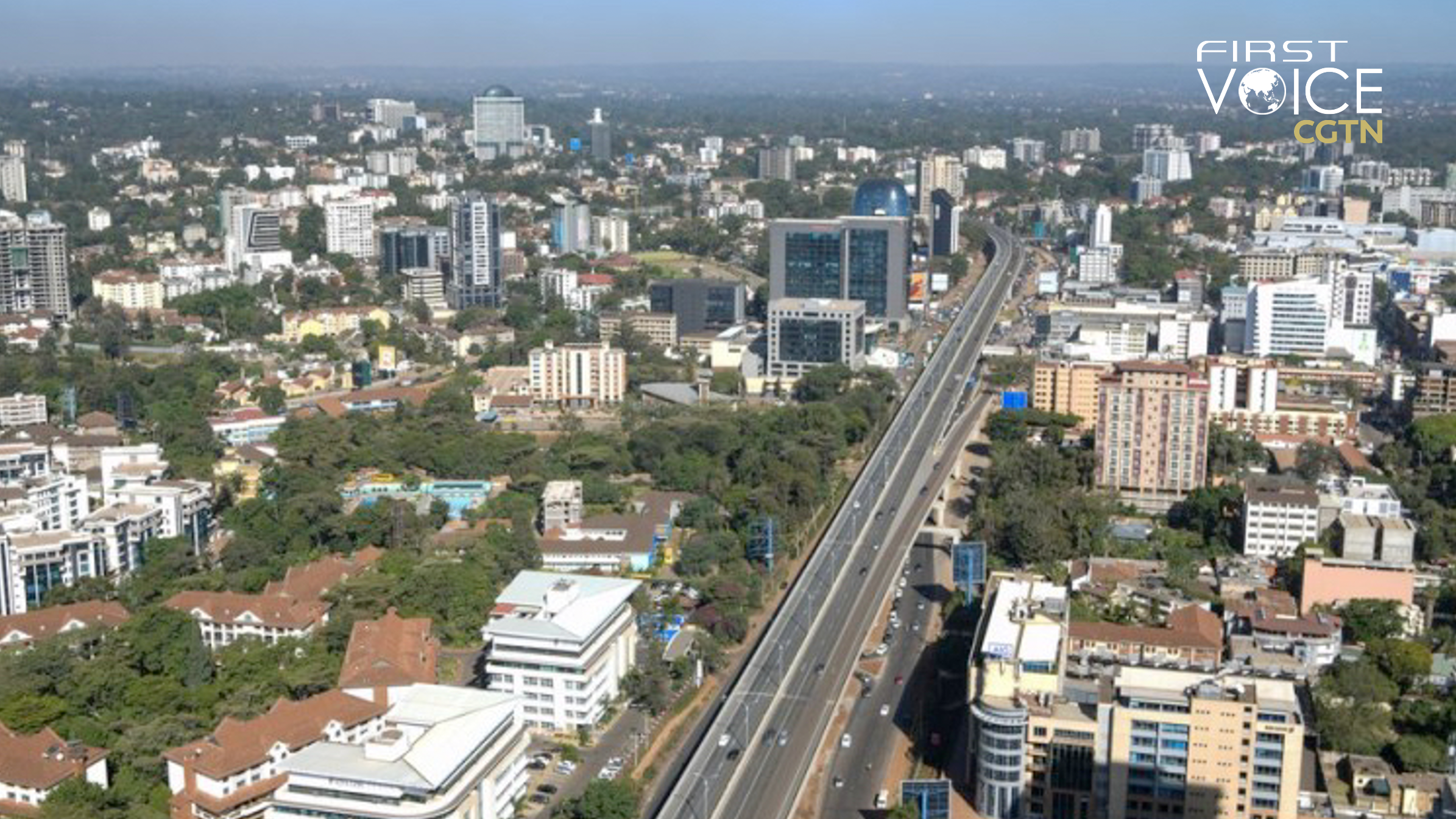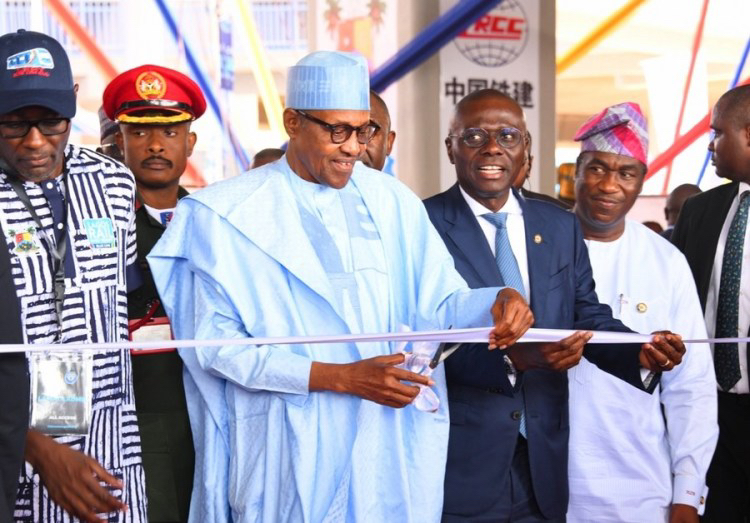
Editor's note: CGTN's First Voice provides instant commentary on breaking stories. The column clarifies emerging issues and better defines the news agenda, offering a Chinese perspective on the latest global events. This First Voice article is written by CGTN Special Commentator Liu Chunsheng, an associate professor at the Beijing-based Central University of Finance and Economics. The article reflects the author's opinions and not necessarily the views of CGTN.
In the past few years, China has promoted economic cooperation with developing countries in Africa and along the Belt and Road. For example, China and Africa continue to boost cooperation in infrastructure construction. A large number of major projects have been completed, including the Foundiougne Bridge in Senegal, the Nairobi Expressway, and Egypt's suburban railway, which has greatly promoted the industrialization process in Africa.
China has provided over $3 billion in credit lines to African financial institutions, with nearly $2.5 billion in loans to key projects in Africa; China has arranged to provide over $2 billion in trade financing to Africa, with a total import of goods from Africa reaching $70.6 billion within seven months. Chinese enterprises have invested $2.17 billion in Africa. China even tries to require IMF to direct Chinese funds toward Africa.
China actively shares its own experience, helps countries along the Belt and Road develop sustainable transport, participates in the construction of public transport networks, and helps local economic sustainable development. The joint construction of the Belt and Road has strengthened connectivity among Asia, Europe, and Africa, and enlarged trade among countries through investment in infrastructure. The joint construction of the Belt and Road has become a new engine to drive the economic development of many countries.
However, the developed countries led by the United States ignore China's great contribution to global sustainable development and the construction of a community with a shared future for mankind, deliberately distort China's significant role in Africa, and hype the concept of China's "debt trap" for no reason, with the intention of throwing dirty water on China, obstructing sincere cooperation between China and developing countries, and hindering developing countries from sharing China's economic achievements.
In fact, a vast number of developing countries have been unable to achieve economic development for a long time, due to their disadvantages in terms of factor endowments, comparative advantages, and political instability but it is closely related to the unequal status of developed and developing countries in international division of labor historically too. On the other hand, the use of financial instruments by developed countries to extort wealth from developing countries is also a cause of long-term poverty in many developing countries.

Nigerian President Muhammadu Buhari cuts the ribbon at the inauguration ceremony of the first phase of a China-built electric-powered light rail project in Lagos, Nigeria, January 24, 2023. /Xinhua
Nigerian President Muhammadu Buhari cuts the ribbon at the inauguration ceremony of the first phase of a China-built electric-powered light rail project in Lagos, Nigeria, January 24, 2023. /Xinhua
To support the development of developing countries, China will continue to promote high-quality cooperation. For example, China waived 23 interest-free loan debts due from 17 African countries. China will continue to actively participate in major infrastructure construction in Africa through various means such as financing, investment, and aid.
At the same time, China will continue to expand imports from Africa, support the development and growth of Africa's agriculture and manufacturing industries, and expand cooperation in emerging industries such as the digital economy, health, and green low-carbon. China has initiated the construction of a global development project library and welcomes African countries to submit project applications.
In response to the food shortage problem in Africa, the Chinese government has decided to provide a new batch of food aid to 17 African countries in need, while encouraging more enterprises to invest in agricultural production and processing in Africa to help them achieve food self-sufficiency.
But it seems that China will never do enough to meet the greedy expectations of the United States, because the U.S. is not sincere about solving the debt problem of developing countries, its main purpose is to hinder the cooperation and common development between China and African countries.
Actually, multilateral financial institutions and commercial creditors from the U.S. and other developed countries are holding nearly three-quarters of the debt, making it the largest creditor in Africa. The world needs to reduce debt and help developing countries overcome their debt difficulties, so the U.S. and the developed countries, as the largest creditors, should play a greater role in alleviating Africa's debt problems and truly solve them.
The general practice of creditor countries in reducing or exempting the debt of developing countries is to grant partial interest reduction or exemption to the creditor country or extend the debt while retaining the principal invested or lent to the greatest extent possible. This approach has the advantage of avoiding credit defaults by the main body of the creditor country and minimizing losses on its own side.
China has made tremendous efforts to reduce developing countries' debt, taken responsibility as a major economy, and will never accept unreasonable demands from any country or international organizations.
(If you want to contribute and have specific expertise, please contact us at opinions@cgtn.com. Follow @thouse_opinions on Twitter to discover the latest commentaries in the CGTN Opinion Section.)